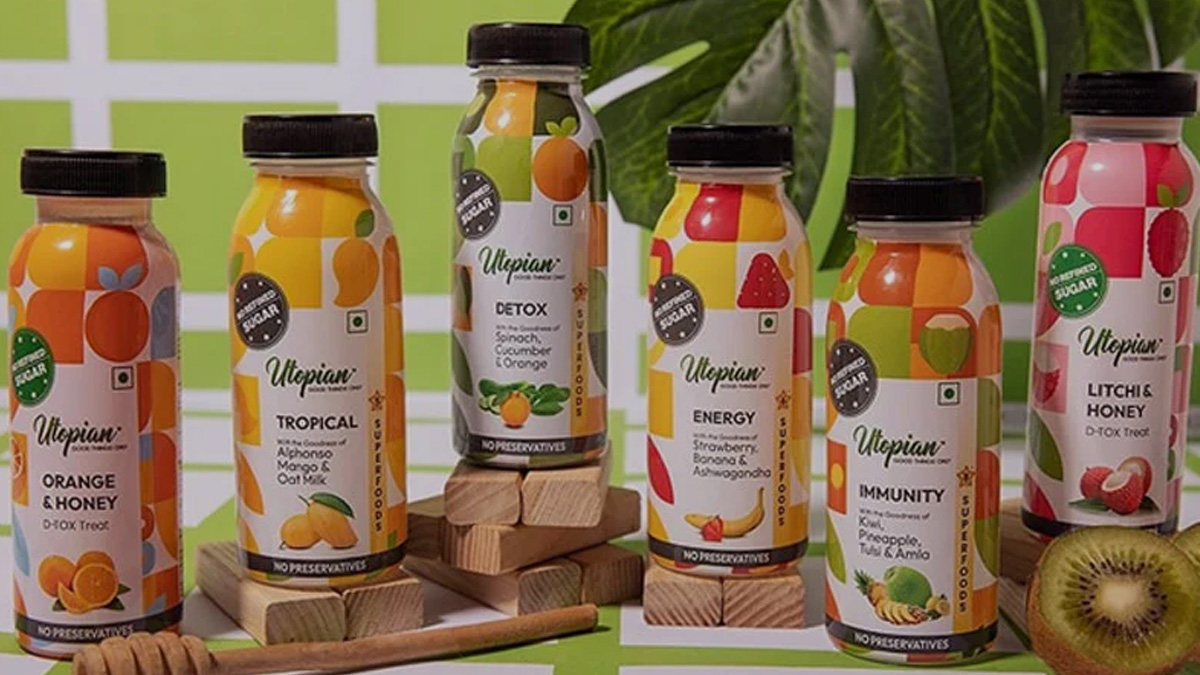
The latest season of Shark Tank India 4 witnessed a dramatic moment when entrepreneur and investor Namita Thapar took a stand against misleading marketing tactics. Founders of Utopian, a health drink brand, sought Rs 40 lakh for 1.8% equity, valuing their company at Rs 22.22 crore. Their product line, consisting of juices and smoothies, was marketed as free from added sugar and preservatives, with an additional claim of being "detoxifying."
Table of Content:-
However, Thapar was not convinced. Upon examining the product label, she was quick to call out the founders for misleading consumers. She pointed out that the drink was essentially just juice and had no real detoxifying properties. When the founders admitted that they used the word "detox" purely for marketing appeal, Thapar was visibly frustrated. She also highlighted how the brand strategically named its drinks ‘D-tox’ to evade legal scrutiny. This incident brought attention to the increasing trend of misleading detox products in the market and the importance of informed consumer choices.
View this post on Instagram
The Truth About Detoxification
Detox drinks have gained immense popularity in recent years, with many products claiming to flush out toxins, promote weight loss, and boost overall health. However, medical experts argue that the human body has its own built-in detoxification system. The liver, kidneys, and digestive system work together to eliminate waste and toxins naturally. Simply staying hydrated and maintaining a balanced diet rich in fiber, antioxidants, and essential nutrients is more effective than relying on so-called detox beverages.
How To Spot Fake Detox Drinks in the Market
With an overwhelming number of products on store shelves claiming to offer miraculous detoxifying effects, consumers must be cautious. Here are some key indicators to help you differentiate between authentic health drinks and misleading detox beverages:

Beware of Exaggerated Health Claims
Products that promise rapid weight loss, instant energy boosts, or miraculous cleansing should be approached with skepticism. Many of these claims lack scientific evidence and are purely marketing tactics designed to attract uninformed buyers.
Also Read: Gaurav Khanna Opens Up About Colour Blindness On Celebrity MasterChef; Why Is It More Common in Men?
Scrutinise the Ingredient List
A legitimate health drink should contain recognisable and natural ingredients. Be wary of obscure or unproven components that are labeled as “superfoods” or “detoxifying agents” without credible scientific backing. If a drink contains artificial flavors, excessive sugar, or chemical additives, it’s best to avoid it.

Watch Out for Influencer Endorsements
Social media influencers often promote products without verifying their claims. Instead of relying on influencer endorsements, cross-check product claims with certified health professionals or nutritionists.
Detox Drinks Should Not Replace Proper Nutrition
No beverage can serve as a substitute for balanced nutrition or medical treatment. If a drink claims to be a complete solution for digestive health, immunity, or detoxification, it is likely misleading consumers.
Look for Transparency in Marketing
Brands that use ambiguous buzzwords without a clear explanation should be approached with caution. Authentic health drinks provide scientific explanations, proper certifications, and transparency in their ingredient sourcing.
Bottomline
While incorporating healthy beverages into your diet can be beneficial, it is essential to distinguish between genuinely nutritious options and those that thrive on misleading advertising. The best way to detoxify your body naturally is by drinking plenty of water, eating fiber-rich foods, and maintaining an active lifestyle. Next time you come across a drink claiming to be a ‘detox miracle,’ take a moment to read the label, research its ingredients, and make an informed decision. Namita Thapar’s firm stance on Shark Tank India 4 serves as a reminder that consumers must remain vigilant against marketing gimmicks that prioritize sales over health. By staying informed, we can make better choices and avoid falling for deceptive health trends.
Also watch this video
How we keep this article up to date:
We work with experts and keep a close eye on the latest in health and wellness. Whenever there is a new research or helpful information, we update our articles with accurate and useful advice.
Current Version
